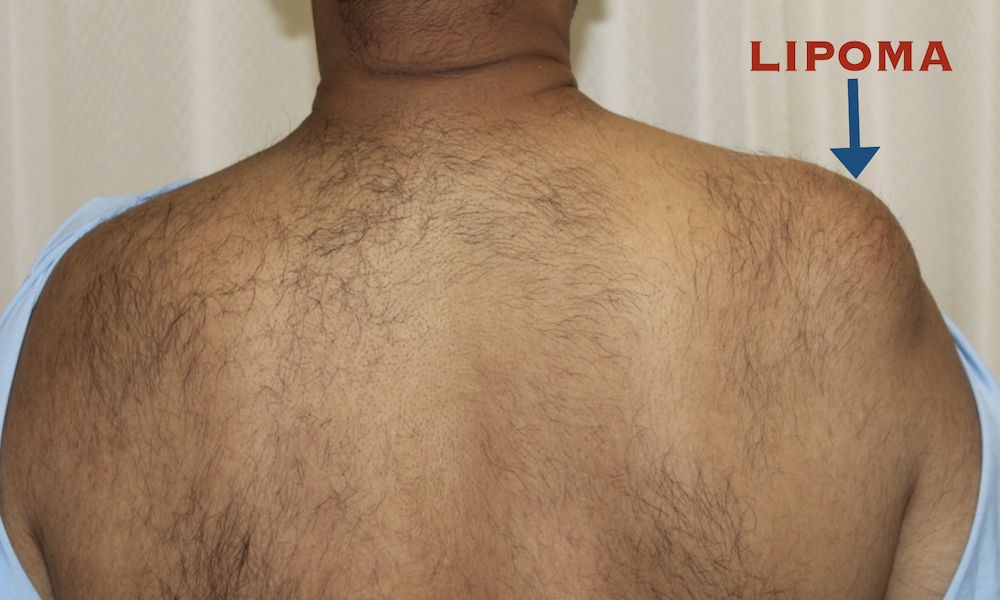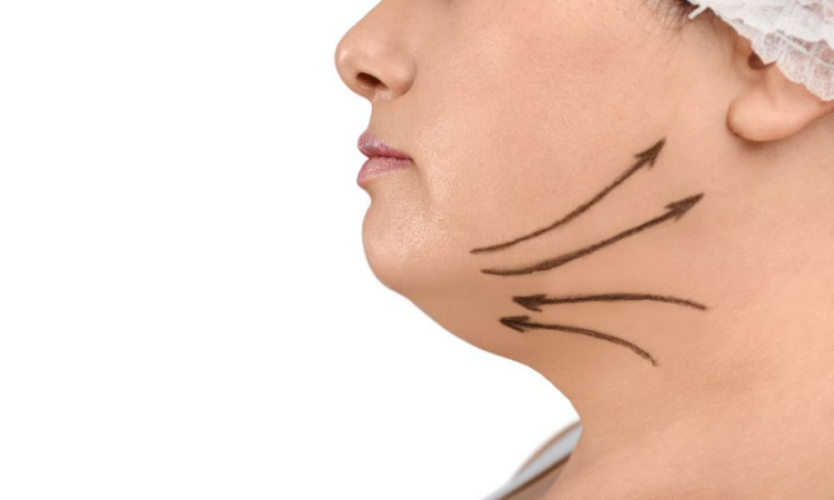What is lipoma?
Lipoma is a swelling due to excess growth of fatty tissue. Lipoma can develop anywhere in the body, generally found under skin although can be in deeper tissues (like in between muscles). They grow slowly but very rarely can turn into swelling that is cancerous. Lipoma can develop without any predisposing risk factors although it can occur in the family due to genetic causes and can present as part of certain syndromes.
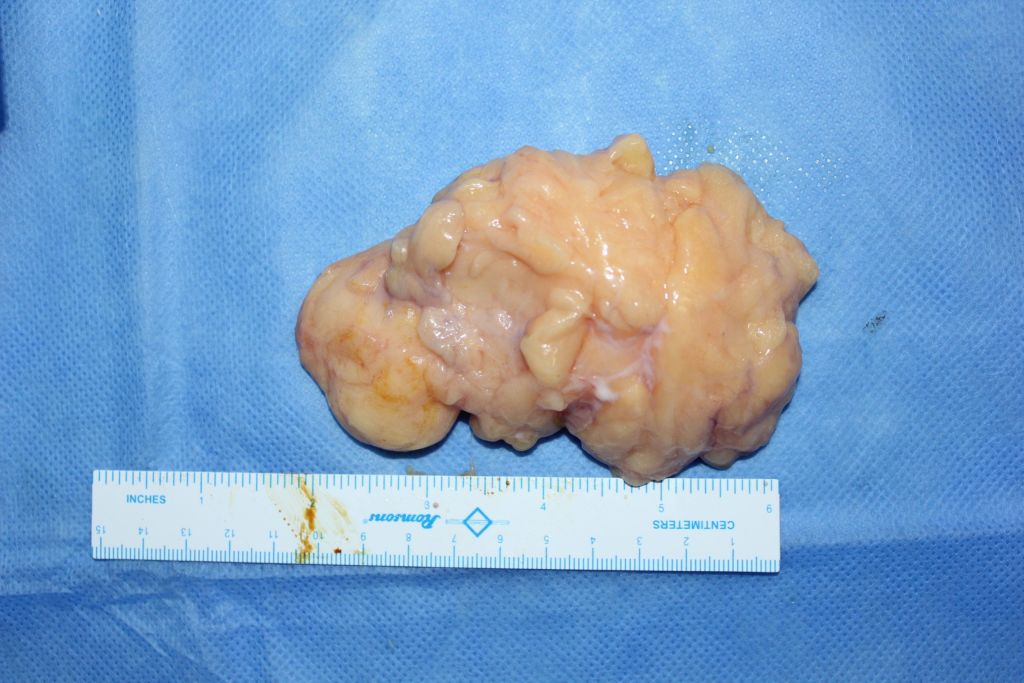
How to diagnose?
Lipoma is diagnosed mainly by clinical examination usually by its characteristic shape, location and feel and history of a slow growing, painless lump that is under the skin. If on examination the doctor is not sure of the diagnosis or to know the location and proximity of other important structures (such as blood vessels or nerves), then further imaging such as ultrasound or MRI scan is suggested.
Treatment:
As lipoma is generally benign there is no medical reason to remove it other than aesthetic reasons or in case if it is causing any symptoms due to pressure. After surgical removal there is no recurrence.
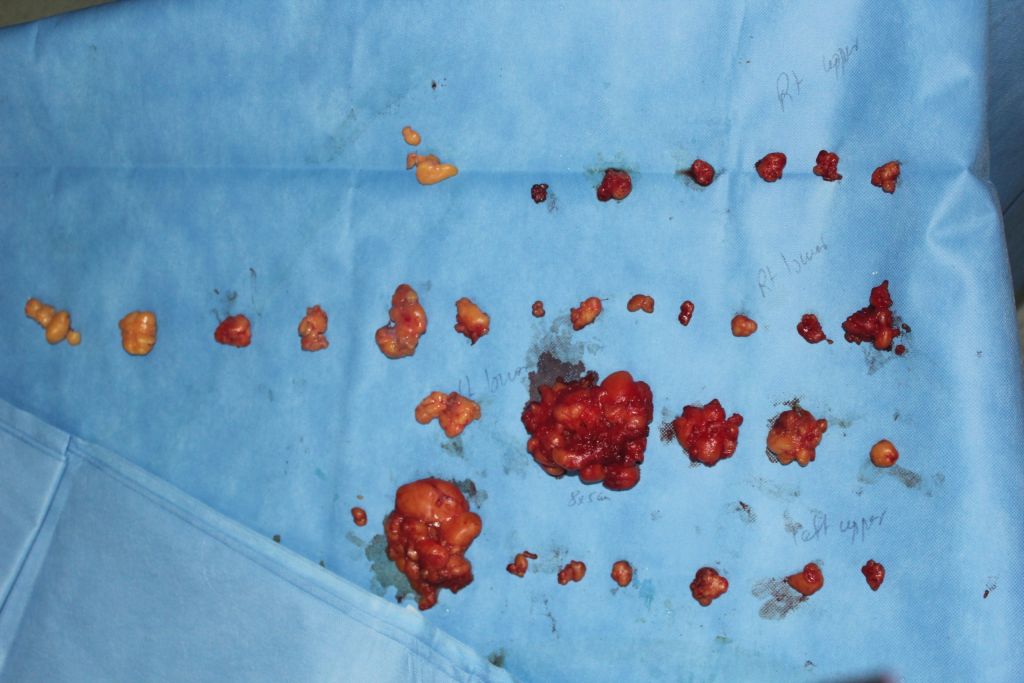
In rare cases, lipoma can be cancerous, known as liposarcoma (soft tissue tumour). Usually it appears in age group 40 – 60 years and is most common sarcoma of adulthood. They are found in deeper tissue and high recurrence at site if not completely removed.
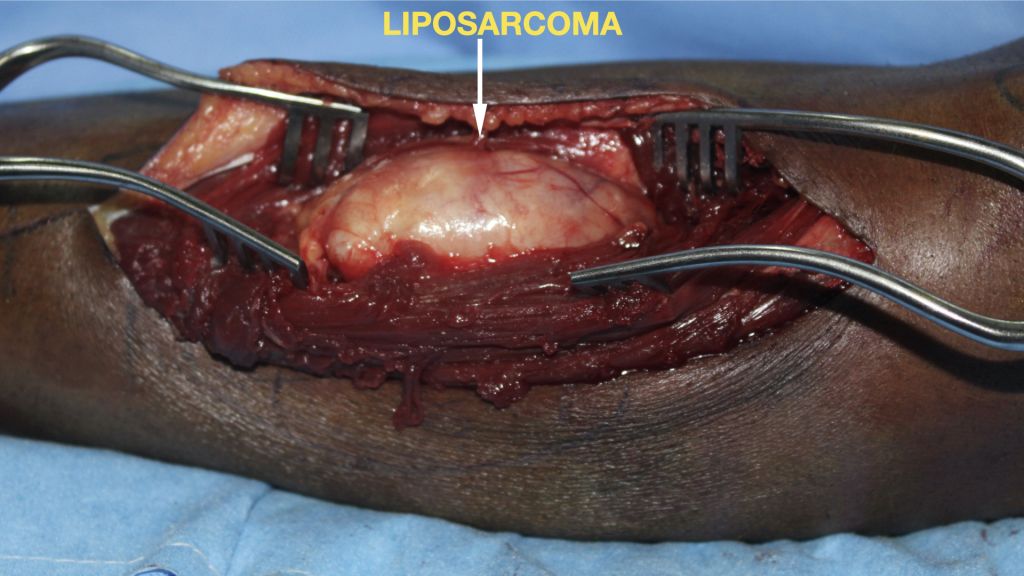
Surgical treatment
- Surgical excision allows to completely remove the lipoma and hence is good at preventing regrowth.
- Liposuction can be considered as minimal invasive procedure through small incision to avoid large scar , although complete removal of the lipoma is sometimes difficult to achieve, therefore the lipoma has a chance of growing back.
Complications:
- Bruising and Infection at the site.
Prognosis
If completely removed, no recurrence and hence good outcome.

